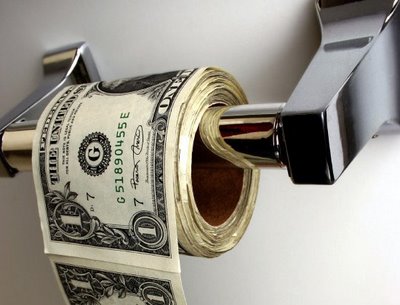Investigations have revealed that by the end of December 2013, Nigeria would have spent a total of N80trillion going by federal and states’ budget appropriations and statutory allocations to the 774 local governments since January 2005.
This means that our 881 governments averagely spend 8.89trillion a year, N740.74billion a month, N24.35billion a day and N1.01billion an hour.
The spending in the year 2013 is higher than the rest. With the exception of Osun State which is yet to publish its 2013 budget estimates, the Federal Government, Federal Capital Territory, Abuja and the other 35 states, barring supplementary budgets, will spend N11.301 trillion this year.
The local governments are also expected to earn as much as N1.4trillion from statutory allocation in 2013. This means the three tiers of government would spend at least N12.7trillion this year, or about N34.79billion a day.
The N80trillion does not include internally-generated revenue and some supplementary appropriations by state governments. In 2008, the councils got N1.05 trillion as statutory allocations from the Federation Account and about N1.2 trillion in 2009. In the eight years up to 2007, the third tier of government received N3.3trillion. Between 2010 and 2012, the councils got about N3.8 trillion as statutory allocations.
Of this huge amount, only 30 per cent or about N24trillion was spent on capital projects while the remaining 70 per cent or N54trillion was squandered on recurrent spending.
The Finance Minister and Coordinating Minister of the Economy, Dr Ngozi Okonjo-Iweala had in a recent explanation into what is to be expected in the 2013 budget, said the Federal Government had reduced the recurrent spending from 71.47 per cent of the 2012 budget to 68.66 per cent, while increasing the capital expenditure to 31.34 per cent from 28.53 per cent in the previous year.
The statement of Okonjo-Iweala explains why majority of Nigerians are still stuck in poverty despite hefty budgets. This is mainly because of the paltry allocation of 31.34 per cent of the budget being allocated to capital expenditure, from where infrastructure and amenities would be provided, whereas recurrent expenditure, covering salaries and emoluments of public servants and political office holders as well as running costs of government, gets the remaining bulk of the budget, giving no cause for cheer. Most states of the federation operate similar budgets too.
The composition of the nation’s public servants is as follows: Federal executive, 472; federal lawmakers, 469; state executives, 2664; state lawmakers, 1,152; council executives, 3096; council lawmakers 8692; and federal/state judiciary, 934, totaling 17,474, a mere 0.011 per cent of Nigeria’s 160,000 million population.
Not only that, most of the funds allocated for capital projects have over the years have been looted by elected officials and civil servants alike. Despite efforts by anti-corruption agencies like the Economic and Financial Crimes Commission (EFCC) and the Independent Corrupt Practices Commission (ICPC), corruption is still on the rise and looted funds are hardly recovered, leaving the citizenry to suffer the brunt.
Among the three tiers of government, the Federal Government is the highest spender, estimated to have spent N32.121 trillion by the end of 2013. In the distance, it is followed by the richest states such as Lagos (N3.238trillion), Rivers (N3.079trillion), Akwa Ibom (N2.651trillion), Delta (N2.377trillion), Bayelsa (N1.708trillion), FCT (N1.336 trillion), Kaduna (N1.096 trillion), Kano (N1.057 trillion) and Oyo (N1.045 trillion).
The expenditures of Lagos and Rivers States respectively over the 9-year period under review is equivalent to that of the five South-Eastern states (N3.345trillion) and the six North-Eastern states (N3.3752trillion).
Across the zones, the oil-rich South-South spent N11.503 trillion. It was followed by South-West (N7.30 trillion), North-West (N5.386 trillion), North-Central (N5.197 trillion), North-East (N3.752 trillion) and the least, South-East (N3.345 trillion).



Leave a Reply